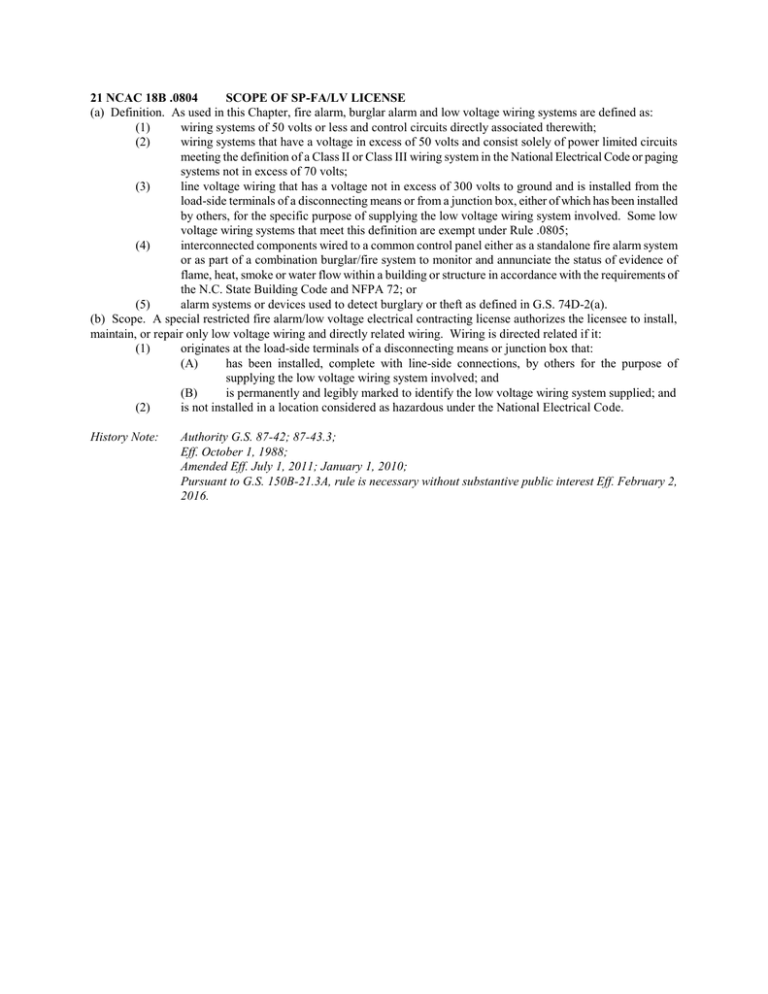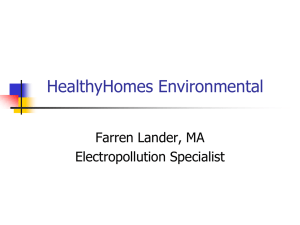21 NCAC 18B .0804 SCOPE OF SP-FA/LV LICENSE (a) Definition
advertisement

21 NCAC 18B .0804 SCOPE OF SP-FA/LV LICENSE (a) Definition. As used in this Chapter, fire alarm, burglar alarm and low voltage wiring systems are defined as: (1) wiring systems of 50 volts or less and control circuits directly associated therewith; (2) wiring systems that have a voltage in excess of 50 volts and consist solely of power limited circuits meeting the definition of a Class II or Class III wiring system in the National Electrical Code or paging systems not in excess of 70 volts; (3) line voltage wiring that has a voltage not in excess of 300 volts to ground and is installed from the load-side terminals of a disconnecting means or from a junction box, either of which has been installed by others, for the specific purpose of supplying the low voltage wiring system involved. Some low voltage wiring systems that meet this definition are exempt under Rule .0805; (4) interconnected components wired to a common control panel either as a standalone fire alarm system or as part of a combination burglar/fire system to monitor and annunciate the status of evidence of flame, heat, smoke or water flow within a building or structure in accordance with the requirements of the N.C. State Building Code and NFPA 72; or (5) alarm systems or devices used to detect burglary or theft as defined in G.S. 74D-2(a). (b) Scope. A special restricted fire alarm/low voltage electrical contracting license authorizes the licensee to install, maintain, or repair only low voltage wiring and directly related wiring. Wiring is directed related if it: (1) originates at the load-side terminals of a disconnecting means or junction box that: (A) has been installed, complete with line-side connections, by others for the purpose of supplying the low voltage wiring system involved; and (B) is permanently and legibly marked to identify the low voltage wiring system supplied; and (2) is not installed in a location considered as hazardous under the National Electrical Code. History Note: Authority G.S. 87-42; 87-43.3; Eff. October 1, 1988; Amended Eff. July 1, 2011; January 1, 2010; Pursuant to G.S. 150B-21.3A, rule is necessary without substantive public interest Eff. February 2, 2016.
